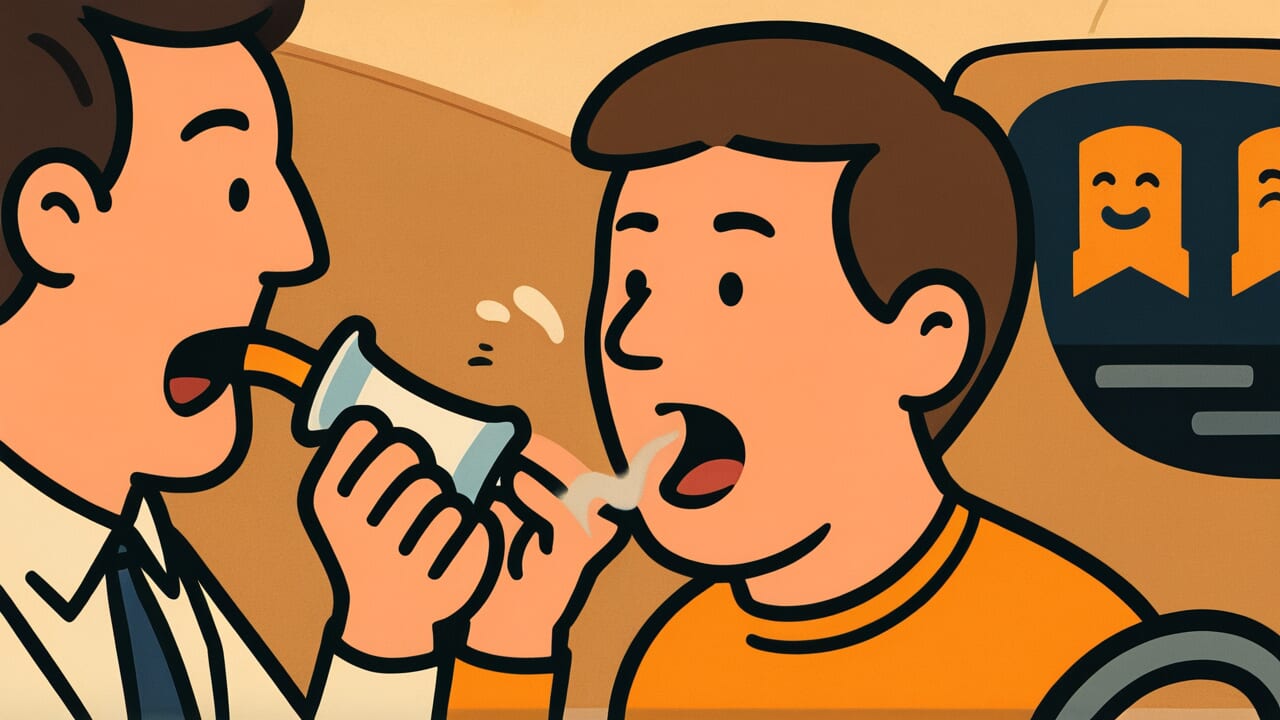How to Read “Tell big lies rather than small lies”
Ōuso wa tsuku tomo kouso wa tsuku na
Meaning of “Tell big lies rather than small lies”
This proverb warns that small lies damage trust more than big lies do. You should avoid them at all costs.
Big lies are obvious to everyone. They get exposed quickly. Sometimes they’re so outrageous that people just laugh them off as jokes.
But small lies are different. They appear in everyday situations and seem harmless at first. Yet they pile up over time and steadily destroy trust.
You use this proverb to warn someone who tells small lies casually. It shows them the hidden danger in their behavior.
Making up excuses for being late or breaking small promises might solve immediate problems. But in the long run, these actions cost you your most valuable asset: your credibility.
Even today, small lies on social media or at work can accumulate and destroy relationships. Trust takes years to build but only moments to lose.
Origin and Etymology
The exact origin of this proverb is unclear. It likely emerged as folk wisdom among common people during the Edo period.
The structure contrasts “big lies” with “small lies” in a striking way. At first glance, big lies seem worse.
But this proverb contains paradoxical wisdom. Big lies are obvious to everyone and get exposed immediately.
If you claim “I’m the Prime Minister,” nobody will believe you. They might even laugh it off as a joke.
Small lies are more cunning. They blend into daily life. “Why I was late” or “excuses for breaking minor promises” slip by unnoticed.
These small lies gradually eat away at trust. In merchant cities like Edo and Osaka, reputation was everything.
People who accumulated small lies eventually found themselves isolated. Nobody wanted to deal with them anymore.
Common people learned this harsh reality through daily experience. This proverb captures that life wisdom about the true nature of trust in human relationships.
Usage Examples
- He keeps breaking small promises and making excuses, but as they say, “Tell big lies rather than small lies”—that kind of behavior destroys trust the most
- When I lied to cover up a minor mistake, my senior warned me: “Tell big lies rather than small lies”
Universal Wisdom
Humans are strange creatures. We react strongly to major wrongdoings but become surprisingly numb to small acts of dishonesty.
This proverb has endured because it understands this human nature perfectly.
Big lies stand out. Everyone notices them, condemns them, and remembers them. Small lies are different.
They disguise themselves as “little excuses” or “minor cover-ups” and slip into our daily lives. Even more frightening, the liars themselves lose awareness that they’re lying.
Why are small lies more dangerous? Because they become habits.
Once you get away with one, the second comes easier. By the third time, you don’t even feel guilty anymore.
This is how people lose their core integrity without even realizing it.
Our ancestors understood something profound. Trust isn’t built by keeping big promises. It’s built by accumulating small promises kept.
That’s why small lies are the most terrifying. They silently but surely erode the foundation of all human relationships: trust itself.
This proverb represents timeless wisdom born from deep understanding of human nature.
When AI Hears This
Comparing small and big lies as information systems reveals surprising differences. Small lies are specific: “I went to the convenience store yesterday” or “The meeting was at 3 PM.”
This means high information granularity. What happens then? Multiple independent sources can verify them: receipt timestamps, security camera footage, other people’s testimony.
If even one contradiction appears, the entire credibility of that person’s statements collapses. In information theory terms, this represents a sudden entropy increase.
An ordered information system plunges into chaos instantly.
Big lies, however, are abstract: “I’m a genius” or “This method guarantees success.” Verification points are vague and require long-term observation to disprove.
In other words, they have high noise tolerance as information systems. Minor contradictions get absorbed as “differences in interpretation.”
More interesting: when one small lie gets exposed, people think “What else are they lying about?” This triggers complete information network verification.
It means total credibility collapse. Big lies can exist as isolated claims, but small lies embed deeply into daily information networks.
When discovered, their chain reaction is exponentially larger.
Lessons for Today
This proverb teaches modern people that integrity is built through small daily choices. Exaggerating slightly on social media, making up excuses for being late, saying “I can” when you can’t.
These small acts of dishonesty quietly chip away at your credibility as a person.
In modern society, information spreads instantly and past statements remain as permanent records. The danger of small lies has increased dramatically.
But this also means the value of small acts of honesty has increased too.
Keeping minor promises, admitting small mistakes honestly, declining requests you can’t fulfill from the start. These daily choices build your asset of trust.
You don’t need to be perfect. What matters is your attitude of trying to be honest in small things.
That accumulation eventually becomes unshakable trust and forms the foundation supporting your life. Why not start valuing small acts of honesty today?



Comments